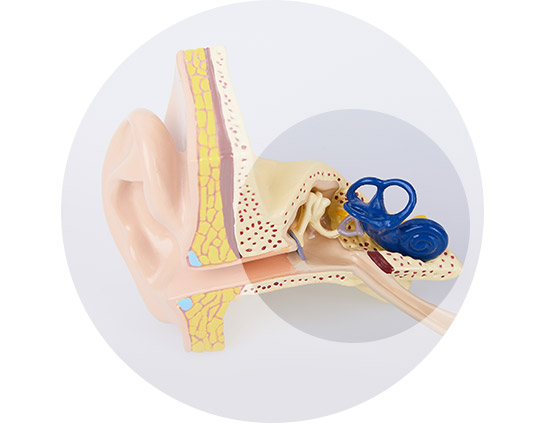Noise-induced hearing loss

What is noise-induced hearing loss?
Noise-induced hearing loss happens when hair cells in the hearing organ (the cochlea) are damaged by being exposed to higher-than -normal noise levels.
Noise-induced hearing loss usually occurs in both ears and is characterised by not being able to hear noises between 3,000 and 6,000 Hertz (Hz). It's the second most common cause of hearing loss, after age-related hearing loss (presbycusis).


Book a free test for noise-induced hearing loss
What causes noise-induced hearing loss?
Excessive long-term exposure to louder-than-normal sounds (typically sounds over 70 dB) is the main cause of noise-induced hearing loss.
The extent of the damage and the speed of its onset depends on a number of factors, including:
- Length of exposure
- Sound level and proximity
- Level of hearing protection being worn (if any)
Noise-induced hearing loss is caused by either recreational (loud music, concerts, headphone use, etc.) or occupational (working in a factory, industrial noise, working on a construction site without hearing protection, etc.) noise, called industrial hearing loss.
4 common signs of noise-induced hearing loss
The main symptoms of noise-induced hearing loss often go away after the exposure to the noise ends. If the noise exposure is repeated, and more cells are destroyed, then you can develop lasting hearing loss. The symptoms aren't usually painful, but they can be hard to identify.
How to prevent noise-induced hearing loss
Noise-induced hearing loss can be prevented by using hearing protection. Protection is now widely available online, and in shops, and comes in many varieties. The cost of protective gear largely determines the level of protection it'll give you. Hearing protection helps prevent ear nerve damage by dampening noise levels.
How to prevent hearing loss
The types of hearing protection available on the market include the following:
- Foam ear plugs – Foam ear plugs are the cheapest form of hearing protection available. They're most commonly used by those in the construction industry.
- Rubber plugs - These are similar to the foam plugs, but they're more rigid, meaning they may not be suitable for all ear canal shapes.
- Banded ear defenders – These are made up of two headphones connected by a headband. They look similar to noise-cancelling headphones and are commonly used for loud recreational sounds.
- Custom ear moulds – These are generally made from a silicone material, and they are personalised to fit the exact shape of the user's ear.

Treatment for noise-induced hearing loss
In most cases, noise-induced hearing loss can be treated with hearing aids. While the hearing impairment itself can't be cured, hearing aids are an effective way to significantly improve your ability to hear the sounds and conversations around you.
As well as wearing hearing aids, avoiding exposure to excessively loud noises can also prevent your hearing loss from getting worse.








